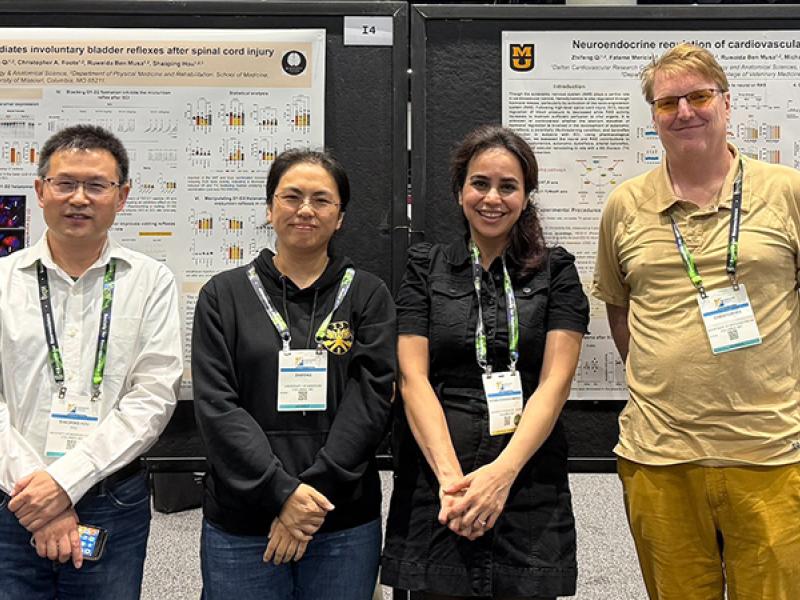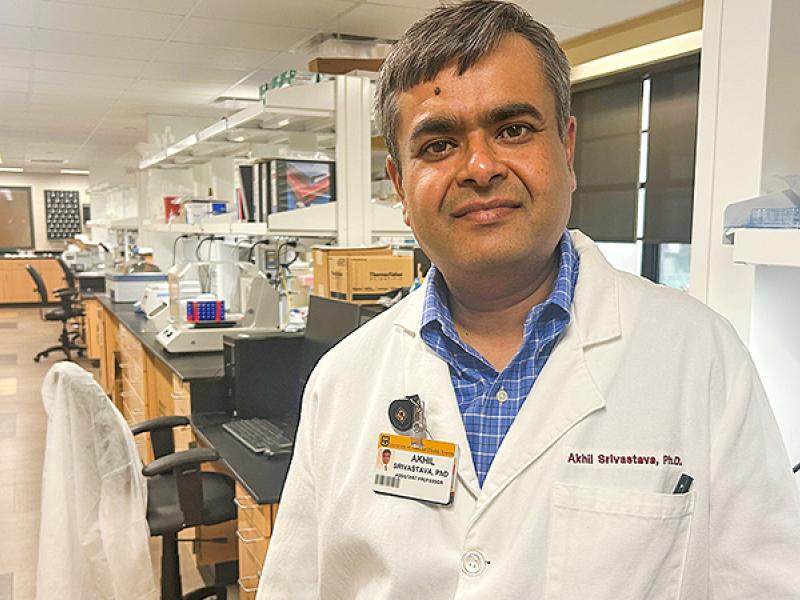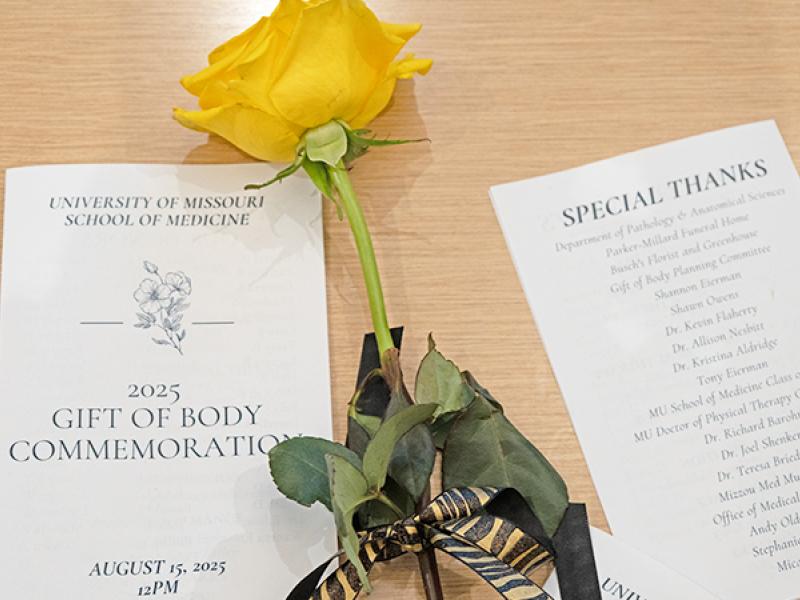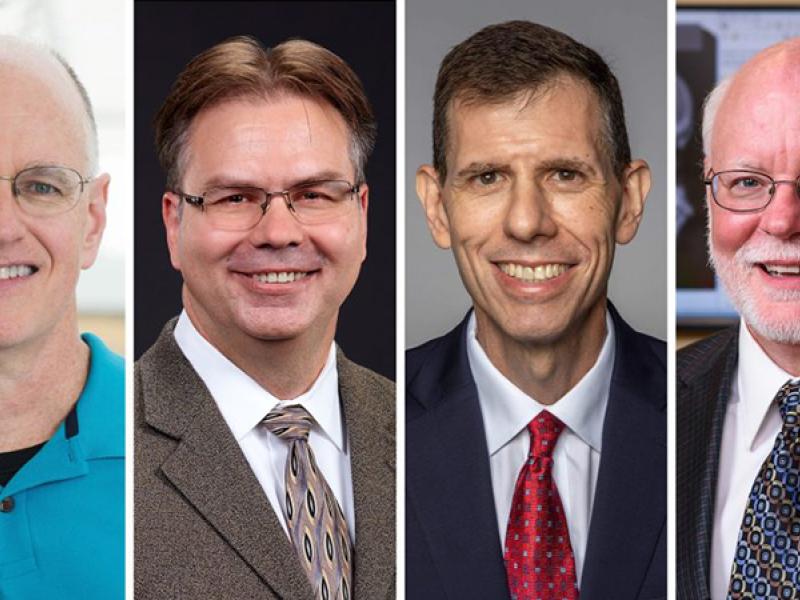The Post-Sophomore Fellowship is a year-long educational experience in the Department of Pathology at the University of Missouri Medical Center, and is a continuation of one’s medical school education by another means. PSF's spend the year rotating through a number of services within the pathology department including surgical pathology, autopsy, the blood bank, clinical microbiology, hematology/hematopathology, clinical chemistry, cytopathology, etc. learning from and participating in the day to day work on each service.
The PSF is given responsibility similar to that of a first-year resident in pathology with oversight provided by senior residents and attending pathologists. There are opportunities for research, if desired, and usually a couple of months of elective time to be spent working in an area of interest within the department.
The pathology department processes approximately 20,000 surgical specimens every year representing a wide variety of neoplastic and non-neoplastic processes from all major organ systems, with residents and PSF's participating in the diagnostic process for each case from gross examination to microscopic analysis. Also, The Boone and Callaway Counties for the Medical Examiner's Office is housed in the Department and completes about 500 forensic autopsies per year, with direct resident/PSF participation in a majority of cases. There are also 50-60 hospital autopsies completed each year, in which residents and PSF's play a very active role. On the clinical pathology services (chemistry, hematology, microbiology, etc.) the PSF serves as a liaison between the laboratory and the clinical teams by finding answers to questions that may impact laboratory testing and providing information regarding test methodologies and interpretation for physician colleagues. There are also opportunities to participate in the subspecialty hematopathology service to gain experience in lymph node and bone marrow pathology. Additionally, there are abundant educational opportunities including daily lectures from attending pathologists and occasionally senior residents, covering a variety of topics in pathology. There will be plenty of opportunities to hone your public speaking skills by presenting interesting cases and journal articles to resident colleagues, as well as opportunities to participate in medical student education such as pathology labs if you are interested.
During the PSF year, you would take a leave of absence from your medical school curriculum and spend the entire academic year (July-June) working in our department. PSF's are awarded a stipend (around $25,000) for the year to cover living expenses, etc. PSF’s are eligible to participate in the University’s Insurance and Retirement.
How to Apply
If you are interested in applying for the position, please contact:
- Shannon Wetzel-Eierman, Residency/PSF Program Coordinator
- Shellaine Frazier, DO, Interim Post-Sophomore Fellowship Program Director
They will be able to provide more information about the application process.
See what PSF’s Alumni have to say
"I think that the post-sophomore fellowship was a great experience that I would recommend for any medical student whether they are interested in pathology or not. It exposed me to how broad the field of pathology is, and gave me more context for understanding lab test and biopsy results on many of my clinical rotations."
“The faculty and fellow residents are very welcoming and encouraging, and try to treat you like a first-year resident in terms of responsibilities and expectations. The department is supportive of research if you choose to engage in it."
"I highly recommend this PSF program to those interested in a pathology residency, but also those applying to any other specialty. The skills and knowledge that you learn and experience are valuable and will prove beneficial regardless of the specialty you choose to pursue. I was able to spend the year practicing how to present to attendings, developing an understanding of complex surgical specimens, reviewing my anatomy, gaining an understanding on lab tests, and building upon my foundation of medical knowledge. The skills I learned allowed me to make strong impressions during my clinical rotations. Overall, this program provides the opportunity to become a stronger residency applicant."
Post-Sophomore Fellowship Timeline
Students should send the following information to Program Coordinator, Shannon Wetzel-Eierman wetzels@missouri.edu
- Personal Statement (i.e. letter of interest)
- Resume
- Copy of grades/transcript (unofficial is accepted)
- Letters of recommendation - We require at least one letter of recommendation from someone who has worked with you within the past year. You’re welcome to submit additional letters if you have them.
Important Dates
Please note: this is a tentative timeline. We will work with individuals as needed.
October 15
Begin receiving applications
November 15
Deadline receiving applications (flexible)
December 1 – January 1
Interviews (students will meet with 3 faculty members and chief resident) – we generally try to have interviews completed by the middle of December.
January 15
Deadline for notifying PSF acceptance (flexible)






